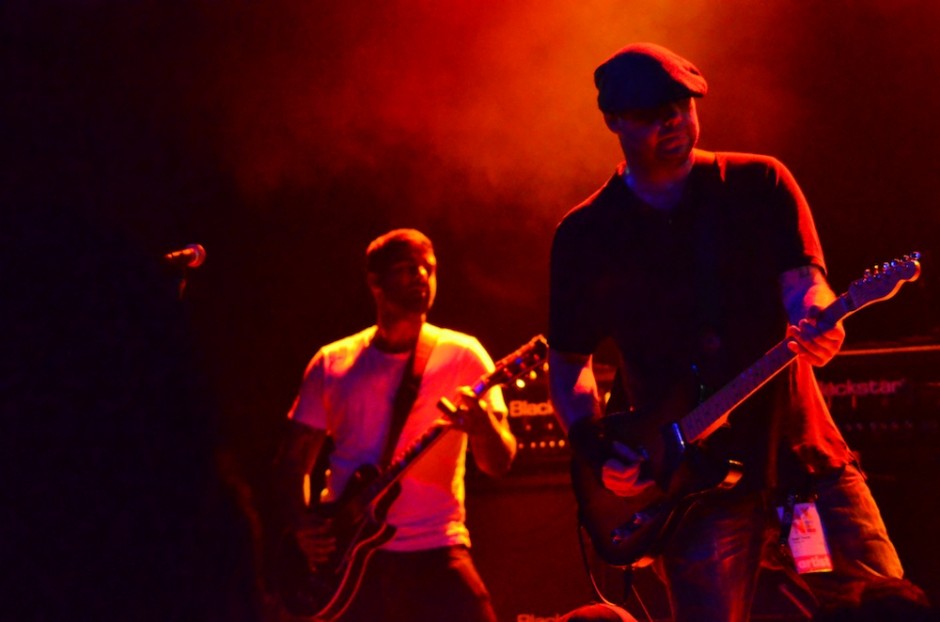Jeff Cohen doesn’t believe that Toronto has the potential to be a world-class music city, because the reality is that we’re already there. Toronto is both the fourth-largest city and the third-largest music market in North America. In 2012, The New York Times claimed Toronto was having a “Seattle” moment based on the number of its critically successful hometown heroes — such as Drake, Feist, and Fucked Up, to name a few.
There are many aspects of the music scene in Toronto worthy of a pat on the back or two. We have a vast number of quality venues — such as Massey Hall, Horseshoe Tavern, and El Mocambo. You are never more than a stone’s throw away from seeing a friend of a friend of a friend play in an impromptu side project.
What’s missing from the picture is a large-scale, weekend-long outdoor music festival to pull it all together. Almost every city, big or small, has one; Montréal has Osheaga, New York City has Governor’s Ball, Manchester has Bonnaroo. Los Angeles (technically, Indio) is home to the “godfather” of all North American music festivals: Coachella, which has been so successful that organizers decided to expand it to run for over two weekends.
Toronto has been without a music festival for years — is it time for us to have a festival for us to call our own? And if it is, can we actually pull it off?
Ghosts of festivals past

The closest thing we have had to our own Osheaga in Toronto was the UK-imported Virgin Festival (V Festival). The festival began in 2006 but, after a rocky four years, the 2010 festival was cancelled due to poor ticket sales and unforeseeable logistical problems.
Since then, other festivals such as Edgefest and the hugely popular Veld have taken place. However, such festivals cater to a specific genre of music and, in short, cannot be considered in the same light as Osheaga or Coachella.
Perhaps the real problem with V Fest was that it was not built from the ground up. It lacked support from Toronto’s hugely diverse music community. The acts that were signed on to perform — those that did not cancel at the last minute — were massive: Björk, The Smashing Pumpkin, Oasis, and The Killers, to name a few. Although they had the potential to draw massive crowds, these choices were generic, mainstream, and failed to pull from Toronto’s impressive resources.
Small festivals in Toronto
V Festival has proven that having a major headliner or two is not the secret to having a successful festival: “The kind of bands that would play a large-scale event already do. That’s not always the case in Austin, small town Tennessee, Ottawa, or Montréal. When Depeche Mode or The Cure play Austin City Limits, it’s a big deal. Here, it’s likely their second play on that record in the market,” explains Cohen, owner of the legendary Horseshoe Tavern and Lee’s Palace and main booker of Collective Concerts and the Toronto Urban Roots Festival (TURF).
When it comes to booking for a festival in Toronto, it comes down to the overall quality of the line-up — not the number of Grammy Award winning-acts with stadium sell-out potential.
Kate Killet, a Toronto-based music blogger who has been to music events all over North America, believes that Toronto already has great festivals. However, many of them don’t receive the attention they deserve: “Just because the headliner isn’t a huge name doesn’t mean it’s not a great festival.”
Calling on City Hall
 What works for Montréal or New York might not work for Toronto, but there are other cities we can learn a few things from: namely Austin, Texas — otherwise known as the “Live Music Capital of the World.” With 842,592 people, the city’s population is about three times smaller than that of Toronto. However, according to 4479, Austin generates three times the amount of economic activity in the music industry that Toronto does. 4479, a Music Canada-founded initiative that, according to its webpage, seeks to establish Toronto as “one of the greatest music cities in the world” and “create energy and action around the concept of Toronto as a music city.”
What works for Montréal or New York might not work for Toronto, but there are other cities we can learn a few things from: namely Austin, Texas — otherwise known as the “Live Music Capital of the World.” With 842,592 people, the city’s population is about three times smaller than that of Toronto. However, according to 4479, Austin generates three times the amount of economic activity in the music industry that Toronto does. 4479, a Music Canada-founded initiative that, according to its webpage, seeks to establish Toronto as “one of the greatest music cities in the world” and “create energy and action around the concept of Toronto as a music city.”
Toronto does not need to be the Seattle or Austin of the North. We have already proven ourselves to be a world-class music city and there is no need to define our music identity based on what we do not have. The problem isn’t in getting people to the festivals or creating a line-up that works: “All the difficulty is behind the scenes. Government interference, insurance, silly laws, AGCO rules, the City Municipal Standards and Licensing are the biggest pain in the arse — I call ‘em the no-fun police,” explains Cohen.
All we really need is for City Hall to open its doors to the music industry — embrace the music festival as an event that has both cultural and economic benefits. Becoming a fully realized music city will foster a stronger, more defined identity for Toronto. The city has both citizens with a passion for music and a hipster appeal to artists across different genres — with support from City Hall and the logistics sorted out, everything else will fall into place.
